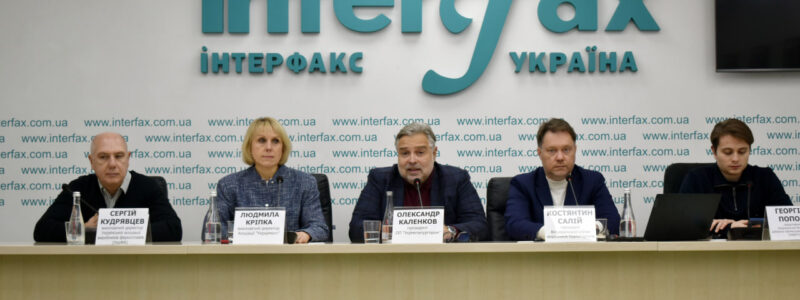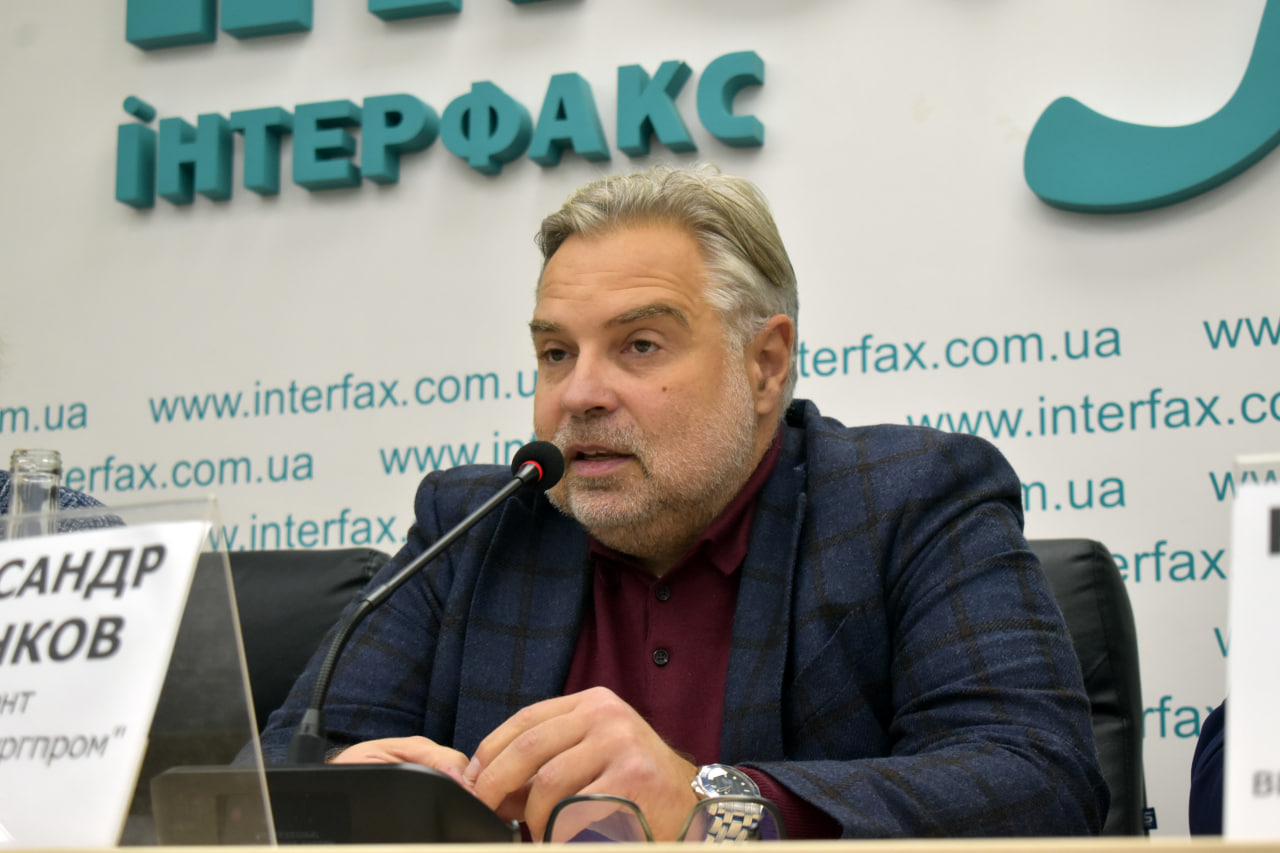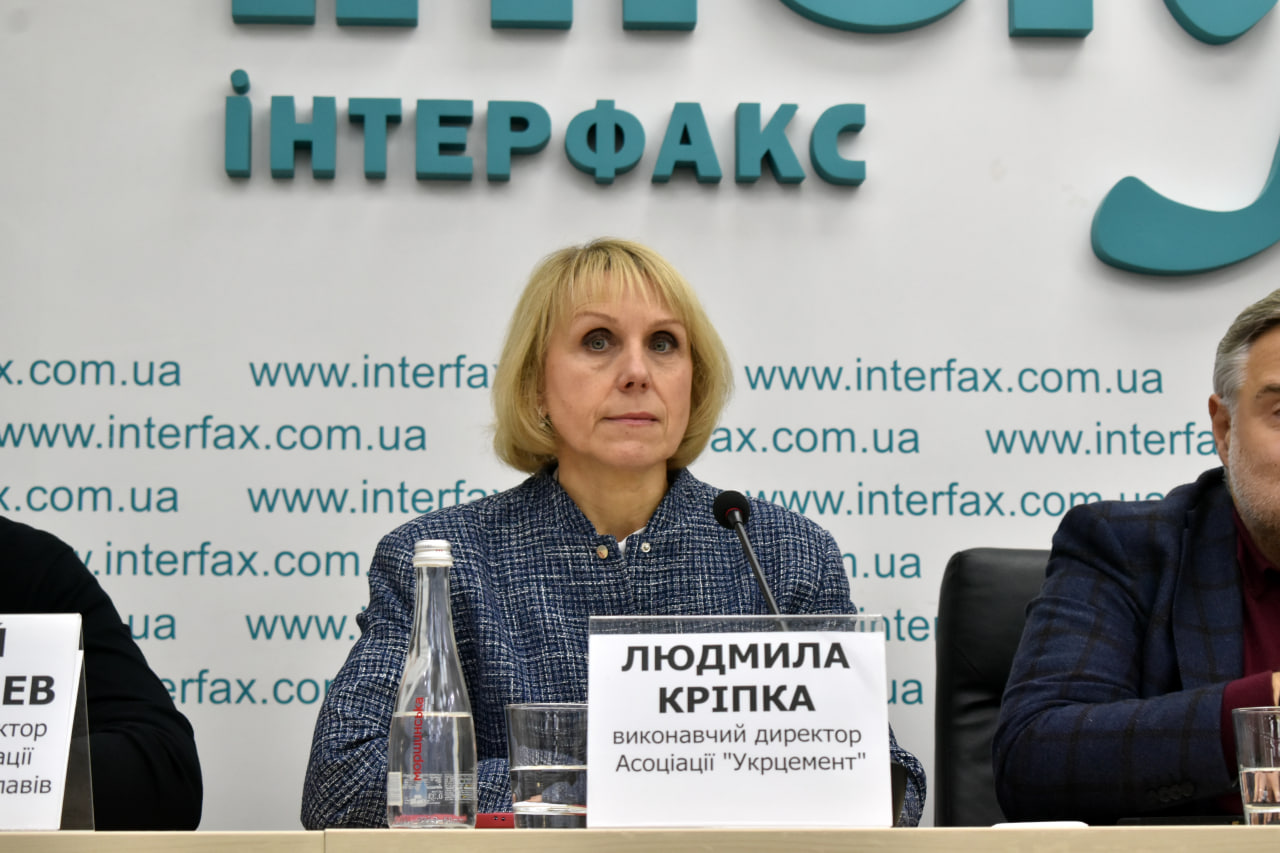
Associations of mining and metallurgical, other industrial and extractive enterprises, manufacturers of building materials and cement have spoken out against increases in freight and electricity tariffs due to the risk of enterprises shutting down or a significant drop in production.
They made this statement at a press conference at the Interfax-Ukraine agency on Tuesday on the topic of “The tariff policy of state monopolies – JSC Ukrzaliznytsia and NEC Ukrenergo, their negative impact on industry and the economy of Ukraine.”
Alexander Kalenkov, president of the Ukrmetallurgprom association of enterprises, noted that the consumers of the services of so-called natural monopolies are mining and metallurgical companies, cement producers, building materials manufacturers, and the like.
“These are the main customers of companies such as Ukrzaliznytsia and Ukrenergo. Before the war, the mining and metallurgical complex, together with ferroalloy plants, consumed about 60% of all electricity supplied to industry and transported more than 40% of the traffic provided by Ukrzaliznytsia. Therefore, we are dependent on the activities of these companies, just as they are dependent on us,” Kalenkov stated, expressing hope that in the future these markets will become more competitive and monopolies will be broken up. But until then, the state must ensure that these monopolies do not abuse their position, he believes.

The head of Ukrmetallurgprom emphasized that Ukraine has the highest electricity tariffs in Europe. “In practice, this means that we are losing the competitive struggle to all entrepreneurs from the EU. I am not even talking about companies located in countries that still consume Russian energy resources—there, prices are several times lower than ours, both for gas and electricity. And that is why we are losing our traditional markets,” Kalenkov stressed.
As for railway tariffs, he said that they are currently cheaper in Poland and Slovenia than in Ukraine. “We already transport cargo by Ukrzaliznytsia at a cost that is 15-20% higher than in Europe, and there are plans to increase tariffs by another 37%. This is not only economically unreasonable and unjustified, it is a dead end,” Kalenkov said.
In his opinion, the tariff policy of Ukrzaliznytsia and Ukrenergo requires attention at the level of the Cabinet of Ministers and the Verkhovna Rada. Ideally, an independent body on transport tariffs, similar to the National Energy and Utilities Regulatory Commission, should be created. To subsidize passenger transportation, UAH 26 billion should be allocated in the budget for 2026 so as not to increase freight tariffs. Otherwise, due to the increase in tariffs, our enterprises will begin to reduce production or exit the market.
Executive Director of the Ukrainian Cement Manufacturers Association (Ukrcement) Lyudmila Kripka emphasized that two-thirds of the cement produced in Ukraine, as well as the raw materials for it, are delivered by rail. Therefore, the industry is very sensitive to unjustified increases in freight tariffs.
“We have already gone down this road, such actions have already had negative consequences in the past, and this time there will be no miracles either. This will lead to negative consequences. Manufacturers will be forced to pass on the increase in tariffs to their products, that is, to the end consumer. This will reduce consumption of products and, consequently, reduce their production and transportation,” Kripka stressed.
At the same time, she pointed out the need to develop state support instruments for energy-intensive export-oriented industries as a temporary anti-crisis measure. According to her, technical and economic criteria should be introduced specifically for enterprises in priority industries. At the same time, the funds saved from the reduction in tariffs for electricity transmission and dispatching could be directed towards investment in our own renewable energy sources.

“In this way, we would fulfill the decarbonization targets set for us by the European Union,” Kripka stated.
She cited data from the state-owned company Ukrpromvneshexpertiza, according to which a 30% increase in freight tariffs would lead to a reduction in GDP of almost UAH 100 billion, a loss of foreign exchange earnings of UAH 98 billion, annual budget losses of more than UAH 36 billion, and the elimination of at least 76,000 jobs.
Sergey Kudryavtsev, executive director of the Ukrainian Association of Ferroalloy Producers (UkrFA), noted that the majority of ferroalloy enterprises are located along the shore of the Kakhovka Reservoir, i.e., in an area close to the combat zone, where working conditions are extremely difficult. In particular, manganese plants have been idle for two years.
“We cannot transport raw materials to ferroalloy plants because the railway lines have been destroyed. And we cannot pay to transport the raw materials needed for ferroalloy production by detours. Ferroalloy plants are currently operating at 15-20% of their capacity. This situation will lead to the end of ferroalloy production in Ukraine. Imported alloys will be brought to us, and the workers will be left without jobs,” Kudryavtsev said.
According to him, this frontline zone is currently being held together thanks to the Nikopol Ferroalloy Plant (NFP), Nikopol pipe and metallurgical enterprises, but it could become “gray” if people leave.
“Today, we have problems with production, logistics, staff shortages, and electricity. This is a region that used to produce electricity, but today we get it from western Ukraine. The tariff is unaffordable for us. Therefore, we are in a situation where we may have to shut down, and it will not be possible to recover. Enterprises are currently operating at 15% capacity, maintaining a continuous process. Because if you stop a ferroalloy furnace, it will take six months to start it up again,” added the executive director of UkrFA.
Source: https://www.youtube.com/live/ATmga3Sdn3g
ELECTRICITY, FREIGHT TRANSPORTATION, KUDRYAVTSEV, TARIFF, КАЛЕНКОВ, КРИПКА